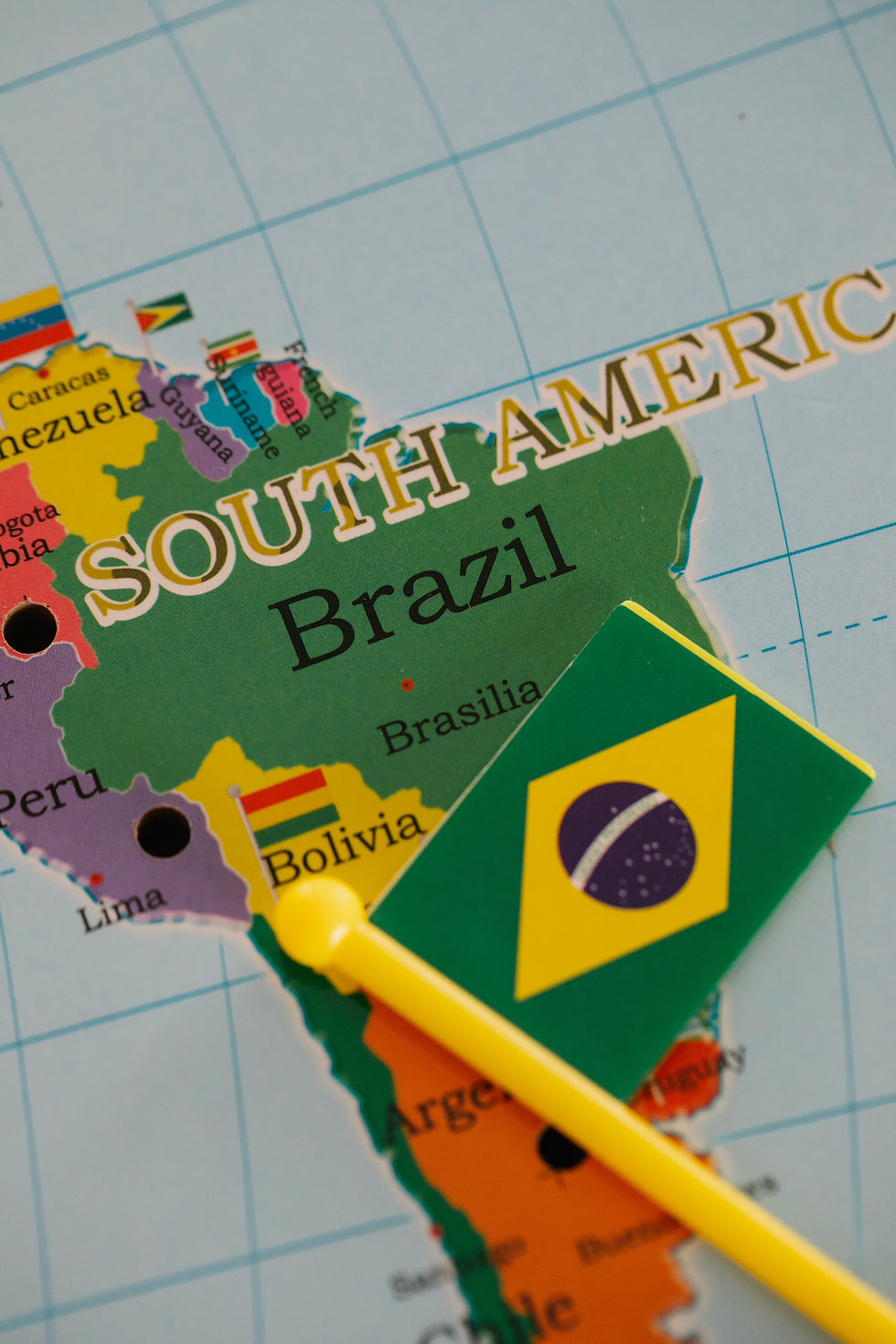News Analysis: Brazil braces for an election with worldwide implications
- Tyler Jackman, Editor In Chief

- Oct 18, 2022
- 3 min read
Tyler Jackman
Anchor Staff Writer

As one of Brazil’s most tumultuous election cycles in decades heads to a finale, millions are preparing to head to the polls to determine the country’s next head of state.
The runoff for the presidency of Brazil takes place on Oct. 30, which will pit incumbent president and former military officer Jair Bolsonaro against former president and trade union leader Luiz Inácio Lula da Silva. This election comes amongst a deeply polarized political landscape in Brazil. The campaign trail within Brazil has particularly been inundated with incidents of political violence and widespread disinformation. The choice of leader the people of Brazil decide, however, will have an impact reverberating far beyond the nation’s borders.
Despite Lula attaining the lead in the first round of voting, Bolsonaro received a substantial share of votes in spite of polling indicating a first round loss. Bolsonaro’s party, the Liberal Party, also achieved sizable victories in Brazil’s Chamber of Deputies and Federal Senate.
This, paired with Bolsonaro’s increasingly bellicose and baseless rhetoric of election fraud, has alarmed analysts worldwide on the condition of free and fair elections. As Lula has refrained from criticizing Brazil’s electoral system, Bolsonaro has assailed election officials and claimed, “I have three alternatives for my future: being arrested, killed or victory.”
The victor of Brazil’s upcoming presidential runoff will signal to the world which way ideological momentum is accelerating. During this period where Lula and his party, the left-wing Workers’ Party, are buoyed by recent leftist victories like those of Gabriel Boric of Chile and Gustavo Petro of Colombia, the rise of populist candidates rejecting losses with unsubstantiated claims of fraud have been accelerated through politicians like the United States’ Donald Trump and Peru’s Keiko Fujimori.
Thiago Pinheiro Lima, a Brazilian public prosecutor, reflected to The Washington Post on Brazil’s electoral climate, stating, “We have a fragile democracy, and we have been under strong and aggressive rhetoric of discrediting the institutions and the voting process for some years now. This makes us fear institutional rupture.”
Beyond the influence on the global shifts between democracies and autocracies, the imminent election will bear an immense significance on the pace of global climate change. Though Lula has committed to increasing fossil fuel productions, his environmental spokesperson has also vowed to reverse the deforestation of the Amazon rainforest and update Brazil’s commitments to the Paris Climate Accords. Deforestation of Brazil’s rainforests have accelerated rampantly under Bolsonaro, who has argued that ecological reserves hinder economic development and falsely claimed his administration is preserving the Amazon, instead of facilitating its deforestation.
The Amazon rainforest stands as a bulwark against carbon emissions, absorbing up to 150 to 200 billion tons of carbon from the atmosphere a year. By virtue of this, the continued destruction of trees in the rainforest can spell an ecological disaster spanning continents and generations. Among the reduction in carbon capture, the hot and dry climate of the deforested savannas would continue to facilitate record high forest fires. The desiccated landscape would also exacerbate food crises through continued droughts and negatively affect the world economy, with a projected $422 million annual loss in the global agricultural sector.
Nearly forty years after the end of Brazil’s military dictatorship, the country’s citizens will soon cast votes in what may be its most consequential election to date. Each candidate has their own visions for how they would govern. Bolsonaro has espoused a promise to tackle crime and corruption in Brazil, while Lula has separately pledged to combat the country’s inequality and hunger, the greatest consequences of the forthcoming election lie beyond the tropical country. Amidst a divided electorate unlike one seen in decades, and no matter which way the vote swings, the people of Brazil will soon decide how the nation will shape international trends for years to come.







Comments